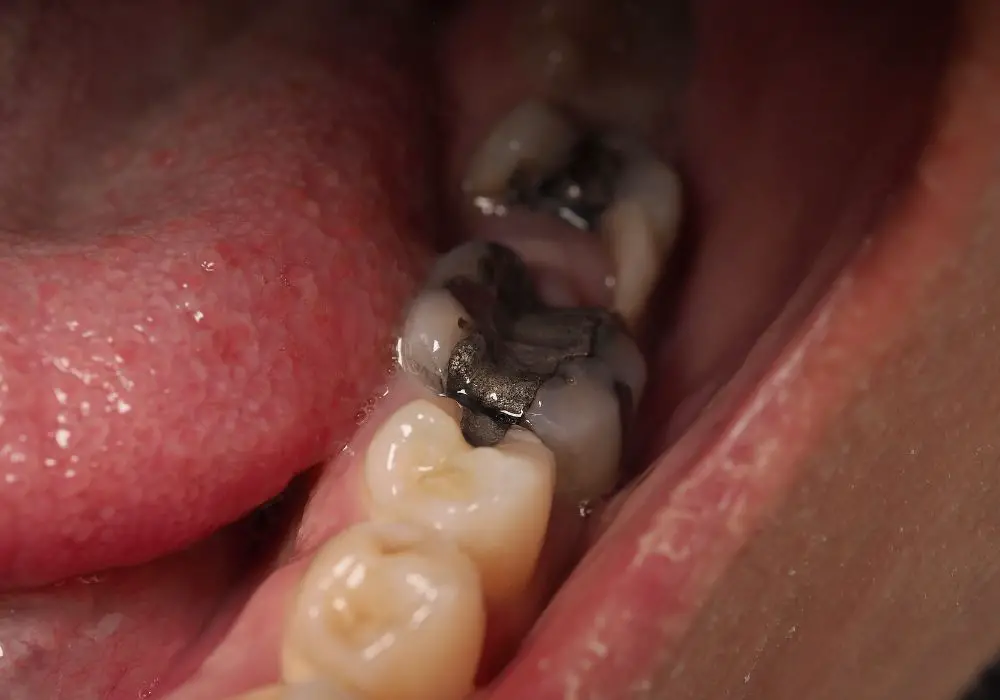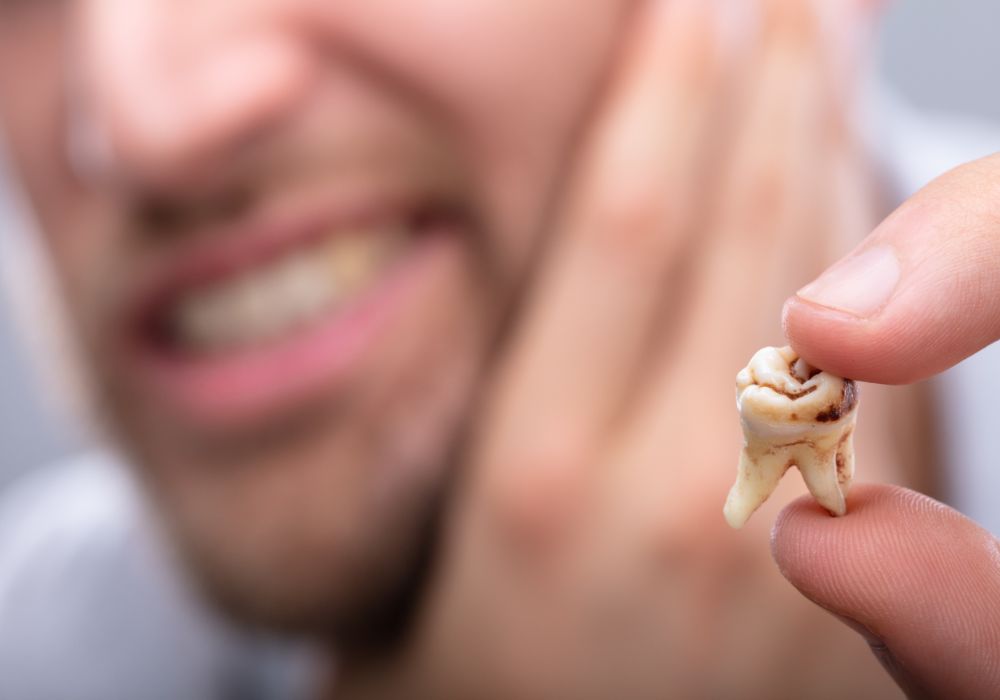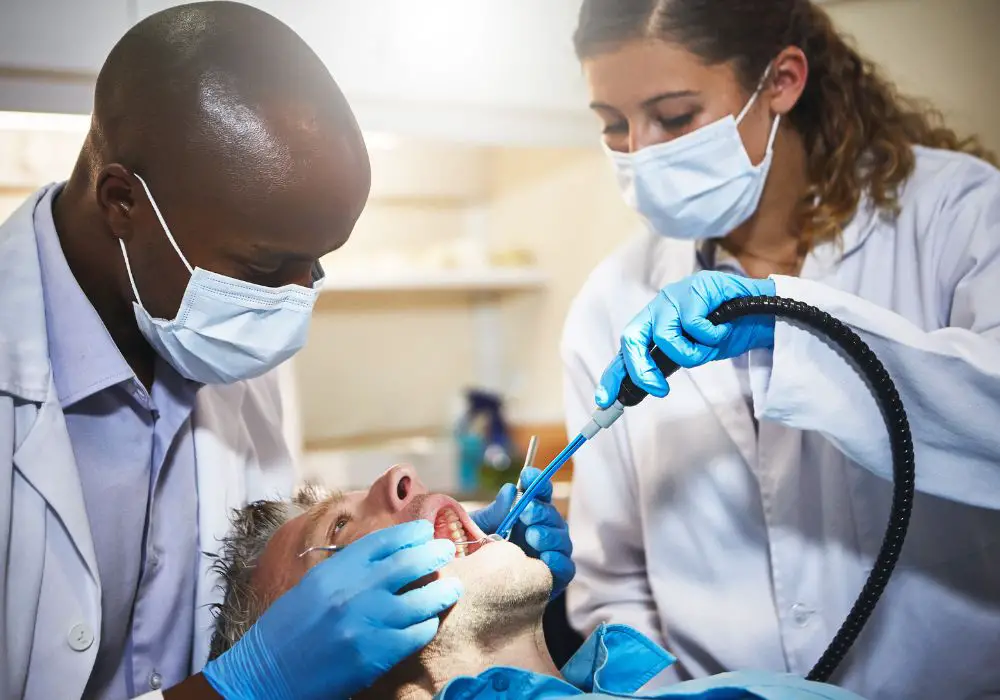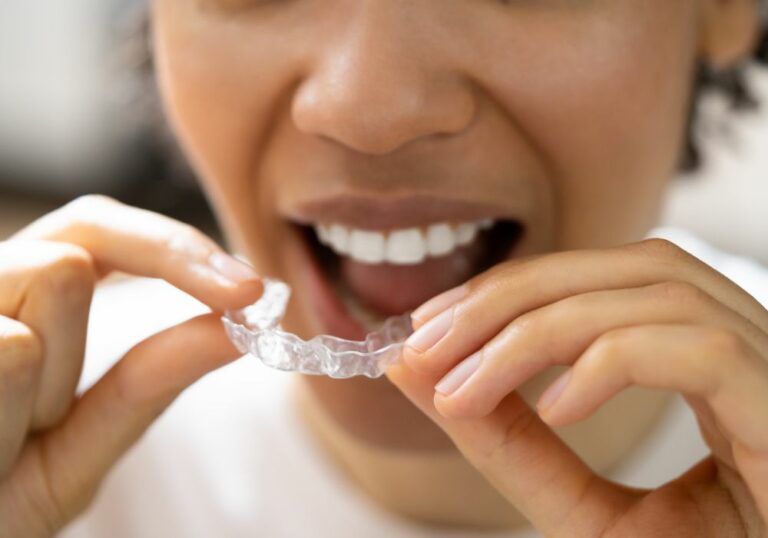Tooth decay, also known as dental caries or cavities, is one of the most common chronic diseases worldwide. It occurs when bacteria in your mouth break down sugars from food and drink to produce acids that destroy the enamel and dentin of your teeth. This can lead to infection and damage to the soft inner pulp of the tooth. But can a decaying tooth also make you sick? Here’s what the research shows.
How Tooth Decay Happens

Your mouth naturally contains hundreds of types of bacteria that form what is called dental plaque on the surface of your teeth. When you eat or drink sugary foods and beverages, the bacteria feed on the simple sugars and produce acids as a waste product. These acids can dissolve the mineral rich enamel that protects your teeth, leading to decay.
Some of the most common culprits for tooth decay include:
- Sodas and sports drinks
- Candy and other sweets
- Bread and grains
- Milk and dairy products
- Fruits and fruit juice
Without proper oral hygiene, such as daily brushing and flossing, plaque can build up and populate areas on your teeth, eventually causing decay. The decay process can take months or years to develop into a cavity. If untreated, the decay will continue through the harder enamel into the softer dentin underneath and advance toward the inner pulp.
Stages of Tooth Decay
Tooth decay progresses through several stages:
- White spot lesions: Earliest stage when acids create microscopic pores in the enamel that appear as chalky white spots.
- Enamel decay: Enamel is dissolved fully, creating a weakened area prone to cavities.
- Dentin decay: Decay has progressed through enamel to the softer dentin layer.
- Pulp decay: Decay has reached the pulp, which contains nerves and blood vessels. This can be extremely painful.
The rate of decay depends on several factors, including how susceptible your teeth are, how often you consume sugary foods and drinks, and how diligent you are with dental hygiene. catching decay in the early stages can allow for simpler treatments to repair the teeth, such as fluoride treatments or fillings. More advanced decay requires extensive treatments like dental crowns, root canals, or tooth extractions.
Health Complications from Tooth Decay
Tooth decay itself often causes no symptoms in the beginning stages since it occurs slowly. As it advances, you may experience:
- tooth sensitivity
- mild to sharp toothache
- visible holes or pits in your teeth
- brown, black or white staining on teeth
Without treatment, tooth decay can lead to severe toothache, tooth loss, gum infections, and even systemic illness throughout the body. Here are some of the most common health complications that can arise from untreated tooth decay.
Dental Abscesses
As tooth decay reaches the inner pulp of the tooth, it can become infected and create a dental abscess. This is a pocket of pus caused by a bacterial infection. The abscess leads to throbbing, persistent toothache and pressure. The infection can spread from the tooth to the surrounding gum and bone tissue, causing facial swelling and more pain.
Cracked Tooth Syndrome
Extensive decay weakens the tooth structure and makes teeth prone to cracks and fractures. Cracked tooth syndrome causes sharp pain when chewing or exposed to cold air and drinks. Bacteria and debris can enter the cracked tooth through the break and irritate the pulp.
Gum Disease
Gingivitis and periodontitis are gum infections that damage the soft and hard tissues supporting the teeth. They are most commonly caused by poor oral hygiene that allows plaque to accumulate. Decaying food particles and toxins from bacteria in plaque irritate the gums. This can cause inflammation, bleeding, receding gums, and eventual tooth loss if left untreated.
Oral Cysts
Decay that reaches the tooth’s inner pulp leads to the death of the pulp tissue inside. This creates a hollow chamber that can fill up with fluid and form a cyst called a dentigerous cyst. The cyst causes bone loss in the jaw and puts pressure on surrounding teeth.
Dental Fistulas
An untreated dental abscess may drain internally, creating a pus-filled tunnel called a fistula from the infected tooth root to tissues or organs like the skin, eyes or nasal cavity. This allows the spread of infection from the tooth to other parts of the face and body.
Systemic Diseases
Research shows that poor oral health including untreated tooth decay may be linked to illness affecting the heart, lungs and other body systems. Bacteria from decayed teeth and gum disease can enter the bloodstream through lesions in the mouth. Though more evidence is needed, possible connections have been made between chronic oral infections and heart disease, stroke, pneumonia, rheumatoid arthritis, diabetes complications, osteoporosis, and Alzheimer’s disease. Prompt treatment is key to prevent bacteria and inflammation from causing damage elsewhere in the body.
Can a Decaying Tooth Make You Sick?

Based on the potential health complications, it is clear that a decaying tooth certainly can make you sick. Tooth decay is an active bacterial infection that spreads progressively deeper into the tooth. Without treatment, the bacteria and inflammation can travel to the surrounding mouth, bones, and systemic regions.
The infection, abscesses, pain, cysts and fistulas caused by severe tooth decay can make anyone very unwell. Even in the beginning stages, the inflammation impacts your ability to chew, swallow and digest foods properly, affecting your nutritional intake. The chronic stress on your immune system from prolonged infection also takes a toll on your overall health.
With proper dental treatment, consequences like tooth loss and illness can be prevented. But without intervention, decay and infection will continue to destroy teeth and tissue while releasing bacteria and toxins into the body. In susceptible individuals, particularly the very young, elderly and those with other health conditions, the effects of rampant tooth decay can be severe, even fatal.
Who is Most at Risk?
- Children and teens
- Elderly adults
- Those with dry mouth conditions
- People with poor oral hygiene habits
- Individuals with diets high in sugar and refined carbs
- Those with chronic diseases like diabetes or heart disease
- Smokers and tobacco users
- Substance abusers (meth, opioids)
- People with weakened immune systems
Prompt diagnosis and treatment of tooth decay improves outcomes. But the adage “an ounce of prevention is worth a pound of cure” is especially true when it comes to your oral health. Maintaining healthy teeth and gums with good daily hygiene and smart dietary choices is key to avoiding the cascade of problems that can stem from neglected decay.
Preventing Tooth Decay Complications
Here are some evidence-based tips for preventing tooth decay and related health issues:
- Brush teeth twice daily with a fluoride toothpaste
- Floss thoroughly once per day to remove plaque
- Get regular dental cleanings and exams every 6 months to catch problems early
- Use antibacterial mouthwash to kill germs
- Limit sugary or acidic foods and drinks
- Chew sugarless gum to increase saliva flow
- Take fluoride supplements if deficient
- Seal pits and fissures with dental sealants
- See your dentist quickly for any oral pain, swelling or other changes
With vigilance and proactive care, tooth decay and associated risks can be minimized. But when caught early, even established decay can often be treated conservatively to restore form and function.
Restorative Treatments for Tooth Decay

If decay has set in, your dentist has many tools to stop the disease process and repair the damage. Common treatments include:
Fluoride and Antimicrobial Rinses
Fluoride makes enamel more resistant to acid. Chlorhexidine and oral rinses like Listerine fight bacteria. These may be prescribed to help strengthen enamel and reduce infection at early stages of decay.
Fillings
Small to mid-size cavities can often be repaired with dental fillings. Composite resin, porcelain, gold and amalgam fillings help replace lost tooth structure, stop decay, restore function and prevent fractures.
Crowns
When a large portion of the visible tooth is damaged, a dental crown fully covers and protects the remaining structure. Crowns improve strength, shape and appearance.
Root Canals
If decay compromises the tooth pulp and root, a root canal removes the infected pulp, cleanses the root chamber and seals the area to save the tooth.
Tooth Extractions
In cases of severe decay, fractured teeth, or other injuries, extraction to fully remove the tooth may be necessary as a last resort.
Dental Implants
When teeth cannot be saved, implants provide a durable artificial tooth root and crown to restore chewing capacity and smile aesthetics.
The Bottom Line
Left unchecked, tooth decay poses a major threat to your oral and overall health. But with an understanding of the risks and preventive care, you can keep your teeth intact and avoid declined health from dental infections. At the first sign of decay, prompt dental visits and treatment provide the solution.
With diligence to dental hygiene, dietary habits and regular professional care, your smile and well-being will remain bright for years to come. Don’t wait for tooth troubles to make you sick. Stay on top of your oral health now and avoid the cascade of problems that a decaying tooth can trigger.
Frequently Asked Questions
Q: How can I tell if I have a decaying tooth?
A: Signs of tooth decay include tooth pain, sensitivity, visible cavities or holes in teeth, dark spots or stains, foul odors, and pieces of teeth that chip or break off easily. See your dentist right away if you notice any of these issues. They can diagnose and treat decay before it progresses further.
Q: What home remedies can I try for a decaying tooth?
A: There are no natural home remedies that can treat tooth decay. Professional dental treatment is required. Until you can see a dentist, you can rinse with warm salt water or use temporary filling material available at pharmacies to provide relief from pain and sensitivity. Avoid putting aspirin directly on gums as this can burn tissue.
Q: Can tooth decay go away on its own?
A: No, tooth decay will never go away on its own. It is an active bacterial infection that progressively gets worse without professional treatment. The decay will continue into inner layers of the tooth until the tooth breaks, falls out, requires extraction, or leads to serious dental abscess or infection. Seek dental care right away if you have any mouth pain, spots, or tooth damage.
Q: What happens if you leave tooth decay untreated?
A: Leaving tooth decay untreated will destroy your tooth structure leading to severe pain, tooth fractures, gum disease, dental abscesses and fistulas, cysts, and even tooth loss. The bacterial infection in the mouth can also spread to the rest of the body leading to serious illnesses. Seek prompt dental care at the first sign of decay to avoid complications.
Q: Can tooth decay be reversed or cured?
A: Early-stage tooth decay prior to cavity formation can sometimes be reversed through dental treatments that replace lost minerals or strengthen tooth enamel. But once a cavity has formed, the decay cannot be cured or reversed. However, dentists have effective ways to remove decay and fill cavities to repair the tooth damage and prevent it from getting worse. With prompt treatment, decaying teeth can often be saved.






